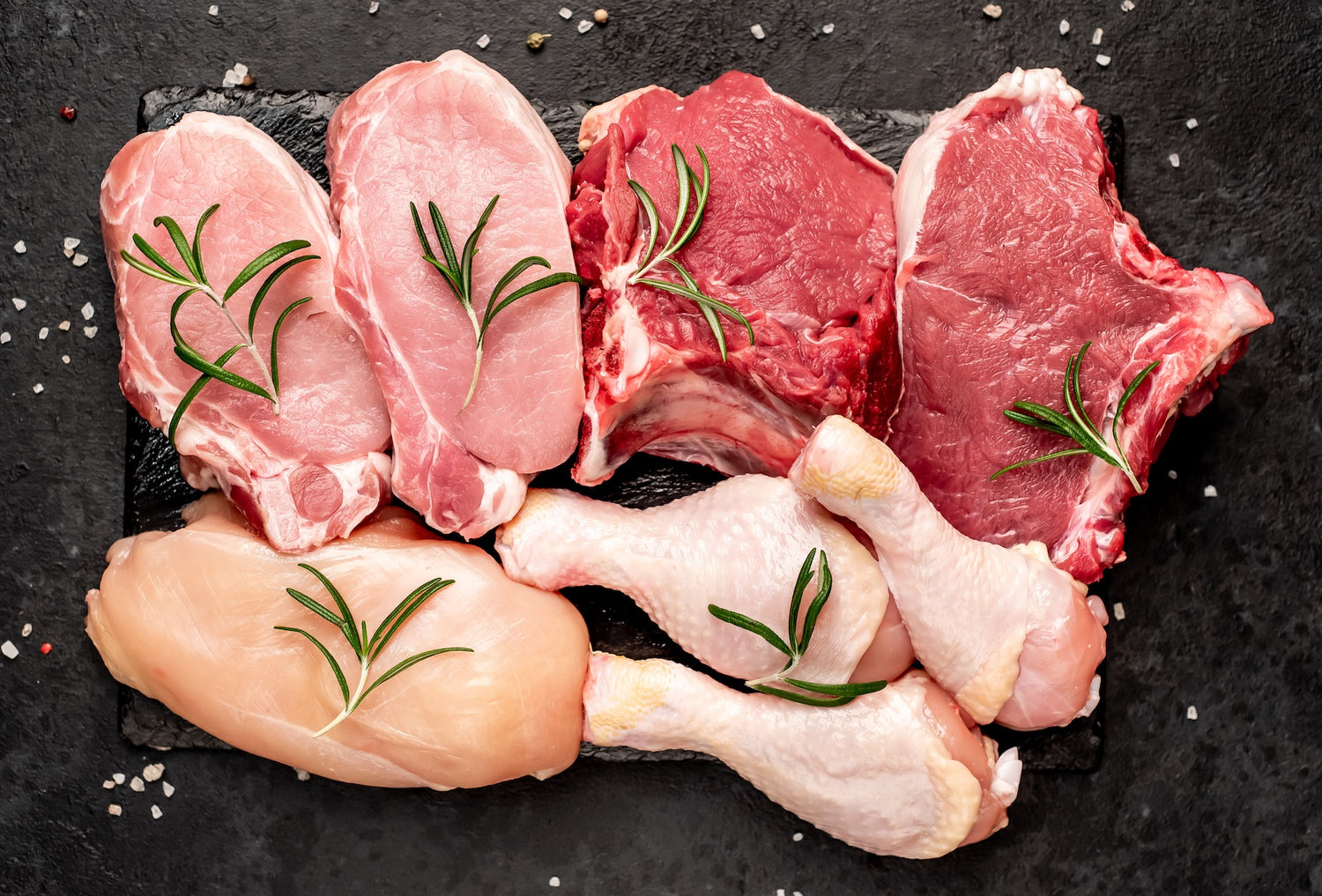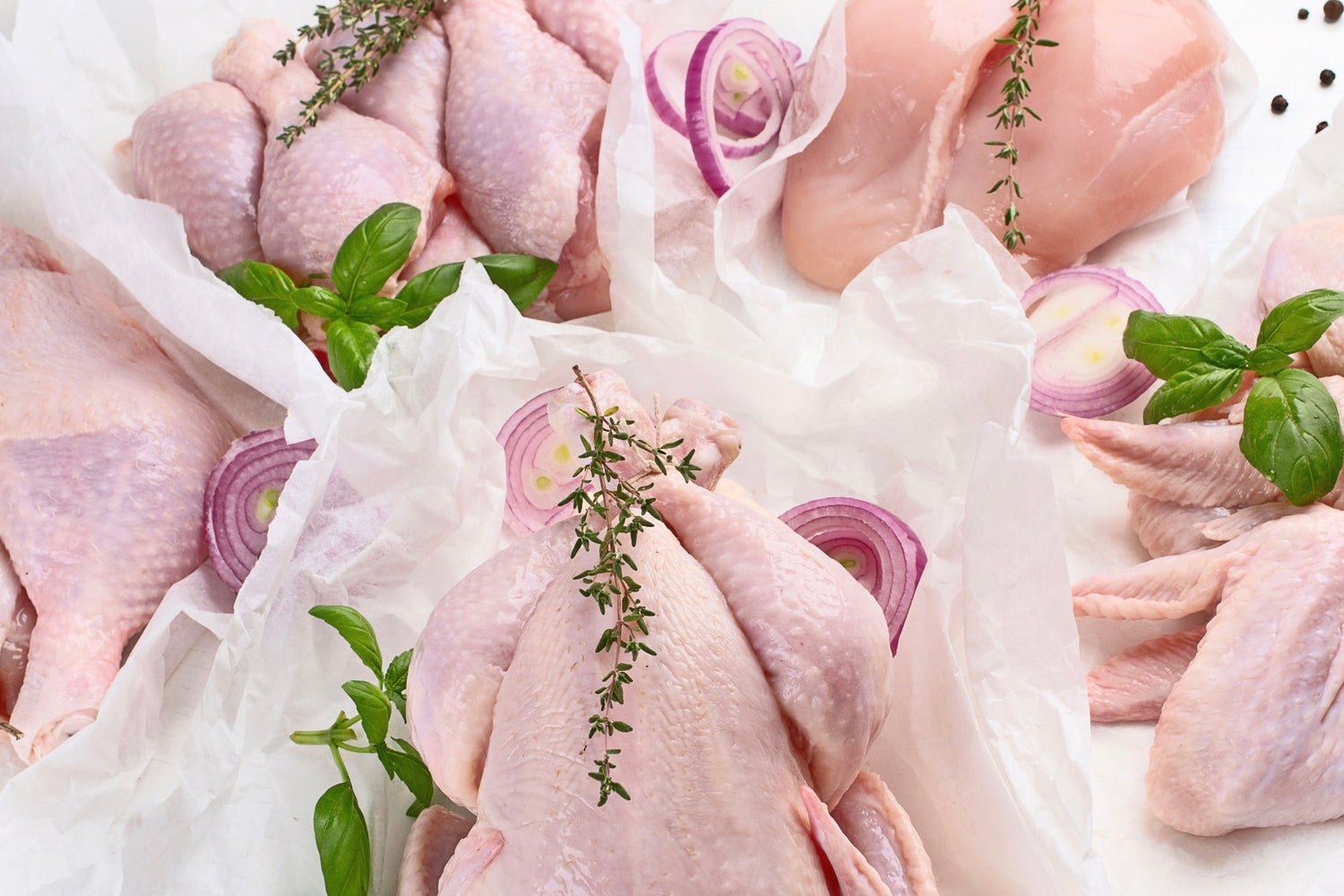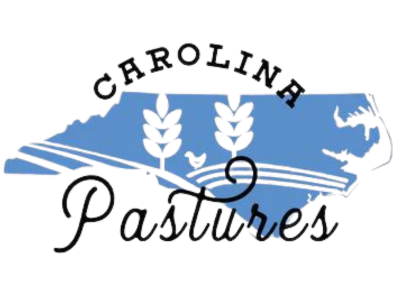Subscribe & Save: Local Meat Subscription Boxes
Our monthly subscriptions are flexible and offer big savings on our pasture raised meat and poultry. With free home delivery, flexible sizes, and a special box for poultry lovers, you can find the perfect fit for your family and your budget–no chest freezer needed.
Best of all, you’re in charge: skip or cancel anytime! Free delivery to Raleigh, Durham, Chapel Hill and beyond.

Monthly Meat Subscription
The best meat CSA in North Carolina! Carolina Pastures Monthly Meat Subscription is a hand selected bundle of our most popular, seasonal cuts of meat. We’ve combined the best of a poultry, beef and pork CSA. Each box contains:
- 20-30% savings compared to retail
- Seasonally curated selection of non-GMO, antibiotic-free: chicken, turkey, duck, pork and 100% grassfed beef
- 3 box sizes: Economy, Family and Big Eater
- Cuts include: whole chicken or duck, sausages, ground, chops, ribs, steaks, and roasts (View sample boxes for each size)
- Save even more with annual up-front payment!
- Support regenerative agriculture, animal welfare, and our small family farm

Monthly Poultry Subscription
We created our Carolina Pastures Monthly Poultry Subscription especially for poultry lovers! If you’re looking for a local chicken share or monthly chicken subscription–this is it! It’s a hand selected bundle of our most popular, seasonal poultry products. Each box contains:
- 20-30% savings compared to retail
- Seasonally curated selection of non-GMO, antibiotic-free chicken, duck and turkey
- Small or Large box size
- Cuts include: whole chicken or duck, ground turkey, wings, thighs, drumsticks, breasts and more (View sample boxes for each size)
- Save even more with annual up-front payment!
- Support regenerative agriculture, animal welfare, and our small family farm
Buy in Bulk for Big Savings
If you have the freezer space, you can stock up and get the best prices on our farm fresh meats. Ditch the grocery store and lock in your quality local meat supply with our Whole & Half Hogs and local whole chicken share.
Free delivery to Wake, Durham, Orange, and eastern Chatham Counties.

Bulk Whole Chickens
Subscription Available
Save big when you stock up on our most popular product: pasture-raised, non-GMO, antibiotic-free Whole Chicken. Fill your freezer with 12 Whole Chickens and save 20%, plus get free home delivery.
Our Bulk Whole Chickens are available as a one time purchase–or Subscribe & Save for a Chicken CSA. You can set it and forget it for delivery every 3 months. If you enjoy a Sunday roast chicken with leftovers all week – this is the perfect option for you! All of our subscriptions are flexible–skip or cancel anytime.
